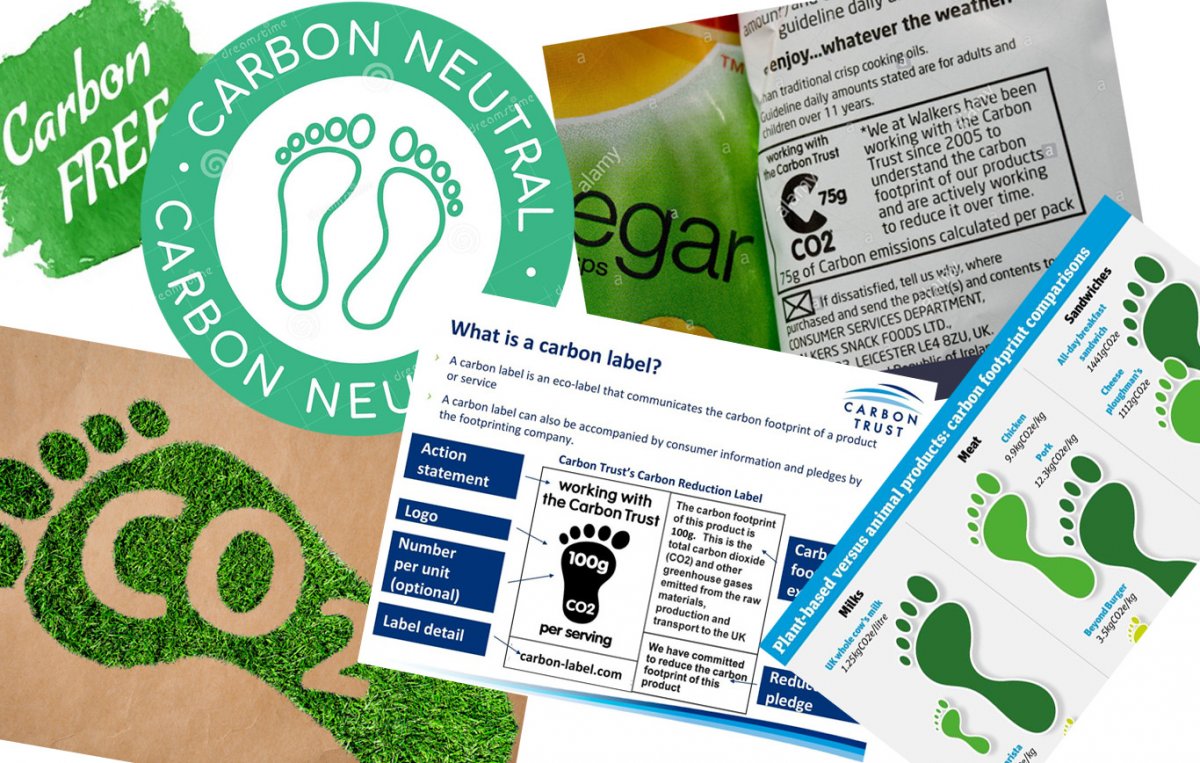Will the Jan-San Industry be starting to use Carbon Labels in their products?
Shoppers are now very used to check out nutrition labels in different products. They like to know their percentages in sodium, or how many calories they have. But lately they have been looking for something else: The carbon footprint of a product. What's this all about?
In the last years, many companies have started putting carbon labels on their products. Like Quorn, a meat substitute; Country Crock butter; restaurant chain Just Salad; L’Oreal; and Logitech International, manufacturers of computer keyboards.
Carbon neutral, carbon zero, carbon offsetting… Do we have any idea what this means and why we should care? Well, these terms serve to help us understand and take action on the climate crisis. At the same time, its extreme appearance everywhere and deep inconsistency has made that in most of the time we cannot understand what producers really want to tell us about their goods and services. And of course, at the end of the day, the big part of this is about marketing: Since companies want people who buy their products to think that they are doing good for our Earth, even if in reality their actions are not so simple. With this we will have a brief review to inform us even a little about the Carbon issue so notorious in these times.
Why are we seeing so many carbon labels everywhere lately?
All of this confuses us more and more since we really are not as well informed as we should be. Since the last count, the Canadian label tracker Ecolabel Index was monitoring 456 different ones in 199 countries, all of which provide varying degrees of useful information. Last year, a huge number of companies appeared that showed climate good faith towards the planet: more and more, consumers say that they care about the environmental footprint of the products they buy and are complying with these sentiments.
"What we see is that once a company commits, its competitor begins to do so," says Laura Timlin, director of the Carbon Trust, a consultancy that helps companies reduce their emissions and offers several certifications.

“When a company puts a ‘carbon label’ on one of their products, it’s an assessment of the carbon [greenhouse] emissions released by the product, essentially from the cradle to grave,” says Steve Ashkin, founder and owner of The Ashkin Group. “View it as an environmental impact score.” You can get more info about Carbon Labels here.
According to Ashkin, expect more sustainability-focused companies to provide information on the carbon impacts of their products, “especially if these companies find it spurs sales. Then it becomes a win for the company, the consumer, as well as the environment.”
Although currently, there are no standardized methods to authentically verify the carbon emissions of a product. The European Union has already taken action on the matter and is beginning to develop such standards.
“What’s most important is that these standards be accurate,” adds Ashkin. “We can’t have estimates based on conjectures. Consumers must be confident in the metrics from the start.”
As to carbon labels being placed on cleaning solutions, Ashkin believes that will be coming soon.
“Many cleaning solutions in the professional cleaning industry perform about the same and cost about the same,” he says. “Carbon labels on cleaning solutions are a differentiator and could shift the way industry professionals select products, similar to the way nutrition labels have changed consumer buying habits.”
Source: Cleanlink Chatelaine
